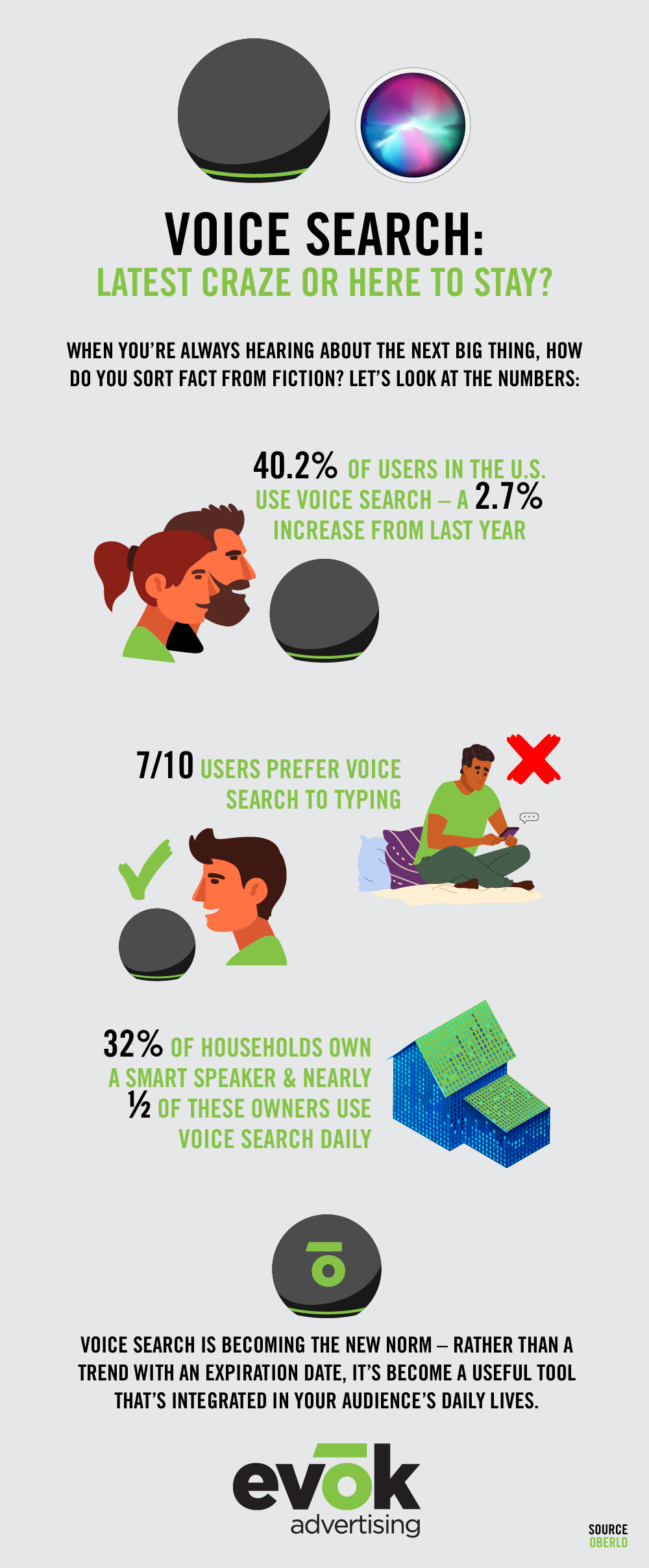
How to Optimize Your Website’s SEO for Voice Search
We live in a world where voice search is taking over and changing the way we find information.
Voice search has become so popular that it’s now a key part of any successful SEO strategy. Because of this, optimizing your website for voice search should be a top priority if you want to stay ahead of the competition. Keep reading to learn why you should care about voice search optimization and how you can easily incorporate search-friendly features into your existing site for better results.

Back to the Basics: What Is Voice Search?
First things first, let’s define what voice search is and how it differs from traditional text-based searches. Voice search is an automated system that allows users to ask their device a question out loud instead of typing it out. Voice assistants like Apple’s Siri, Amazon’s Alexa, Microsoft’s Cortana, and Google Assistant are all examples of voice-enabled search products that allow users to ask questions or make requests with their voices instead of typing on a keyboard or device.
Why You Should Care About Voice Search SEO
Voice search SEO is important because it helps businesses reach potential customers who use voice assistants like Siri or Alexa to find answers to their questions. If your site isn’t optimized for voice search, you won’t show up in the results when people ask questions related to your business or industry. So, if you want to stay competitive in today’s digital landscape, then optimizing for voice search should be a key feature of your overall SEO strategy.
How To Optimize Your Website for Voice Search
Optimizing your website for voice search isn’t as complicated as it may sound. Here are some tips on how you can get started:
• Use long tail keywords – Long tail keywords are more specific than traditional keywords and they tend to match more closely with natural language used by voice searchers. For example, if someone were looking for “restaurants near me” they might use the phrase “What are the best restaurants near me right now?” when using a voice assistant rather than just “restaurants near me” which would be more likely if they typed their query into a text box on a website or app.
• Make sure your local business listings are up to date – Local businesses need to make sure their business listings (e.g., Yelp) are accurate and up to date because they appear prominently in many voice searches related to location or services available nearby.
• Create content optimized for natural language – Many people use conversational language when asking questions through their devices, so creating content that reflects this type of speech will help boost your rankings in both text-based and voice searches.
• Optimize content for featured snippets – Featured snippets appear prominently in the results page when someone does a voice search. This means optimizing your content specifically for featured snippets can help increase visibility in those types of searches.
• Utilize schema markup – Structured data helps provide additional information about pages which can make them easier to understand by machines like Google’s algorithm which helps them rank better in SERPs (search engine result pages).
• Create FAQ pages – Frequently asked questions (FAQ) pages can help improve visibility since many people tend to ask similar questions when using voice assistants like Alexa or Siri.
Our team has actively put these practices into play for one of our credit union clients. Here’s what Beatrice Cherry from Florida Credit Union had to share on the strategy and the Results provided:
“People naturally have a lot of questions about their finances. Once we optimized our website to better address their voice searches that match the way people actually ask questions, we were able to increase our website traffic and have seen a meaningful impact on our membership base.”
It’s clear that optimizing your website for voice search is no longer just a good idea — it’s an essential part of any successful SEO strategy. By using these tips and tricks you can ensure that your website stands out from the competition when people do searches via mobile devices or other virtual assistant platforms like Amazon Echo or Google Home Mini. Start implementing these strategies today—your future self will thank you!
Ready to dig deeper? Give us a call. Book time with our team to discuss voice search optimization and the trends impacting search marketing strategies.